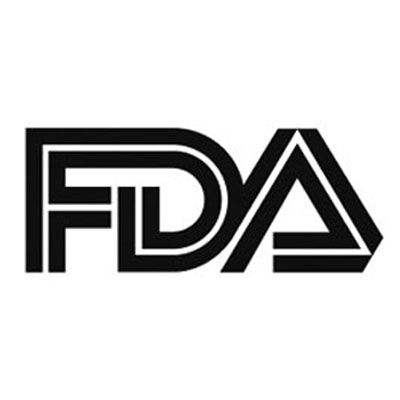FDA Approves Frontline Nivolumab/Ipilimumab/Chemo for Advanced NSCLC
Nivolumab plus ipilimumab in combination with chemotherapy was granted approval for the frontline treatment of patients with metastatic or recurrent non–small cell lung cancer who do not harbor EGFR or ALK genomic tumor abberations.

The FDA has approved the combination of nivolumab (Opdivo) and ipilimumab (Yervoy) with limited platinum-doublet chemotherapy for the frontline treatment of patients with metastatic or recurrent non–small cell lung cancer (NSCLC) who do not have EGFR or ALK genomic tumor aberrations.1
The approved indication for this combination is for patients regardless of histology or PD-L1 expression. With this indication, chemotherapy is given concomitantly with the immunotherapy doublet for 2 cycles.
"We have come a long way in understanding the role of dual immunotherapy-based approaches in cancer and the potential impact on patients’ long-term outcomes,” said investigator David P. Carbone, MD, PhD, director of the James Thoracic Oncology Center at The Ohio State University, in a statement. “The positive findings from CheckMate -9LA demonstrate the benefit of combining dual immunotherapy with limited chemotherapy for NSCLC patients regardless of PD-L1 status. With today’s approval, more patients now have access to an Opdivo + Yervoy-based option and a chance at a longer life.”
Findings supporting the approval, which was completed through the FDA's Real-Time Oncology Review pilot program, came from the ongoing phase 3 CheckMate-9LA trial. Bristol Myers Squibb announced in October 2019 that the trial met its primary end point,2 demonstrating superior overall survival (OS) with the combination compared with the use of chemotherapy alone.
According to findings from the prespecified interim analysis, the combination of nivolumab and ipilimumab with limited chemotherapy demonstrated a median OS of 14.1 months (95% CI, 13.2-16.2) versus 10.7 months (95% CI, 9.5-12.5) with chemotherapy alone (HR, 0.69; 96.71% CI, 0.55-0.87; P = .0006).
At 1 year, 63% of patients treated with the immunotherapy/chemotherapy combination were still alive compared with 47% of those treated with chemotherapy alone.
The overall response rate by blinded independent central review was 38% (95% CI, 33%-43%) versus 25% (95% CI, 21%-30%) in the immunotherapy and limited chemotherapy and chemotherapy-alone arms, respectively.
Full findings from the CheckMate-9LA trial will be presented at the upcoming 2020 American Society of Clinical Oncology Virtual Scientific Program.
In the open-label, multicenter, randomized phase 3 study, patients with previously untreated advanced NSCLC were given 360 mg of nivolumab every 3 weeks, 1 mg/kg of ipilimumab every 6 weeks, and 2 cycles of chemotherapy in the experimental arm. These patients were treated for up to 2 years or until disease progression or unacceptable toxicity. In the comparator arm, patients received up to 4 cycles of chemotherapy, which could be followed by optional pemetrexed maintenance treatment if the patient was eligible.
The trial enrolled patients regardless of their PD-L1 expression level or histology; patients were, however, required to have measurable disease and an ECOG performance status of 0 or 1. Those with EGFR or ALK alterations as well as patients with untreated brain metastases were excluded from participating in the trial.
Secondary end points in the trial included progression-free survival and overall response rate in both the intention-to-treat population and in PD-L1 and tumor mutational burden subgroups.
The toxicities of the combination was consistent with the known safety profiles for the individual components.
Recently, the FDA also approved the combination of nivolumab and ipilimumab for the first-line treatment of patients with metastatic NSCLC whose tumors express PD-L1 (≥1%), as determined by an FDA-approved test, with no EGFR or ALK genomic tumor aberrations. This approval was based off of findings from part 1a of the phase 3 CheckMate 227 trial.
References
1. U.S. Food and Drug Administration Approves Opdivo® (nivolumab) + Yervoy® (ipilimumab) Combined with Limited Chemotherapy as First-Line Treatment of Metastatic or Recurrent Non-Small Cell Lung Cancer [news release]. Princeton, NJ: Bristol Myers Squibb; May 26, 2020. https://bwnews.pr/2znmG9j. Accessed May 26, 2020.
2. Opdivo (nivolumab) Plus Yervoy (ipilimumab) with Limited Chemotherapy Significantly Improves Overall Survival vs. Chemotherapy Alone for Patients with First-Line Metastatic Non-Small Cell Lung Cancer in CheckMate -9LA Study [news release]. Princeton, NJ: Bristol Myers Squibb; May 13, 2020. https://bit.ly/2A8qbQQ/. Accessed May 26, 2020.